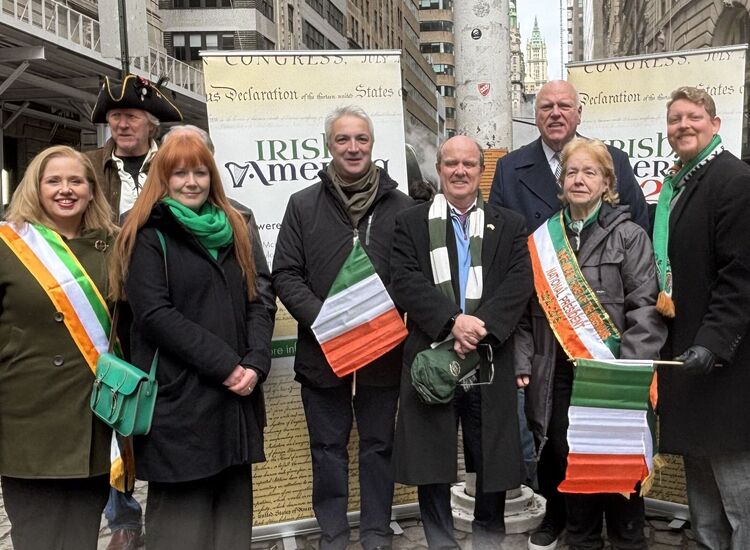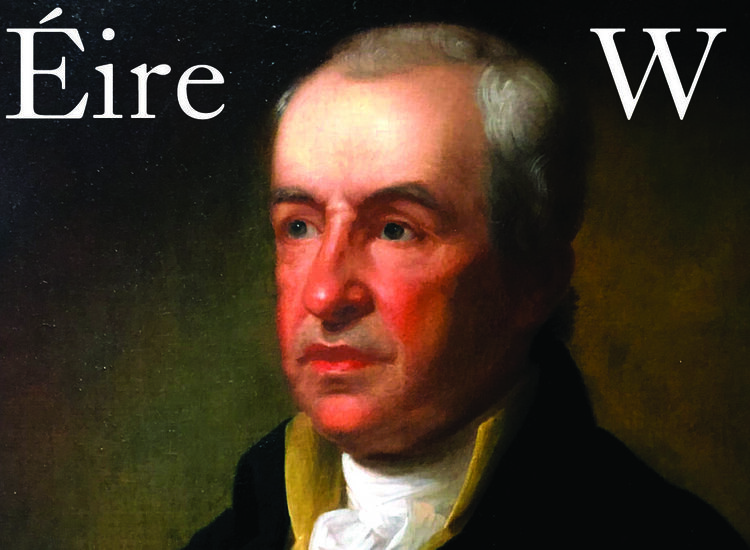Alice Milligan and the Irish Cultural Revival By Catherine Morris The Four Courts Press, Dublin 342 pp., $70
I fell on this book like a ravening wolf and came away well satisfied. There were two reasons for my appetite: Alice Milligan was originally a native of Omagh, which well-informed people will know is the jewel of mid-Ulster; and much of her story deals with her attempts to revive the Irish language in the north, creating a legacy which made possible the flowering of the language here today.
This biography gives no information on Milligan's height, but in the picture on the cover she looks a feisty little number; in a photograph deeper in the book, where she's addressing a large man filling his pipe, she looks like a formidable talker as well. (Proof-reader needed: the photograph, the caption tells us, was taken at “Draperstown Feis, Co. Tyrone.” Gedoutahere).
She came from a Methodist home which was strongly opposed to Home Rule and which regarded her fervent commitment to republican ideals as something of a betrayal. After partition, Milligan speaks in her letters of a double sense of exile: cut off by the border from the rest of the country, and especially Dublin, which she loved; and cut off from her family through the gulf between their politics. This emotional exile didn't prevent her giving years to the care of ailing relatives, sacrificing many of her own literary and political plans to their failing health. Several of these years were spent in Mountfield, near Omagh, and if you come from lovely spot, better look away now: she detested it as the back of beyond.
Her poetry, which her biographer quotes from extensively, was patriotic to the edge of propaganda: but she was amazingly productive, at one point turning out two or three verses a week for newspaper publication. As well as writing she created drama and still image exhibitions of Ireland's heroic past, and took them round the country. On New Year's Eve, 1897, with some friends she lit a bonfire on Cave Hill to mark the coming centenary of 1798 and dedicating herself and her companions to Ireland's freedom. As we enter a decade of centenaries, it's instructive to read of the importance Milligan and her contemporaries attached to such commemorations.
She was an acquaintance of Yeats, Pearse, Connolly, Douglas Hyde, George Russell - all the leading figures in politics and the arts of her day. Why did she break so completely from the tradition in which she had been raised? That remains unclear, other than that she became "a Parnellite" suddenly and inexplicably as she was traveling on a tram along O'Connell Street.
Morris's book crams in a wealth of detail about and quotation from this extraordinary woman. Feminist, journalist, republican, psychic, novelist, poet: from the early 1890s to the 1940s, Milligan worked tirelessly to re-awaken the radical Protestant republican tradition of Wolfe Tone. In return she earned the suspicion and contempt of those who saw her as having shamed her family and her tribe. The strongly-unionist Belfast Evening Telegraph warned its readers against such as Alice Milligan: 'Those who are now exultant over the futile Rebellion of '98 are the discontents who seek the re-establishment of a Parliament in Dublin and the ascendancy of the Roman Catholic church in Ireland".
Now who does that sound like?
An absorbing biography, and you don't even have to be from Omagh to enjoy it.









